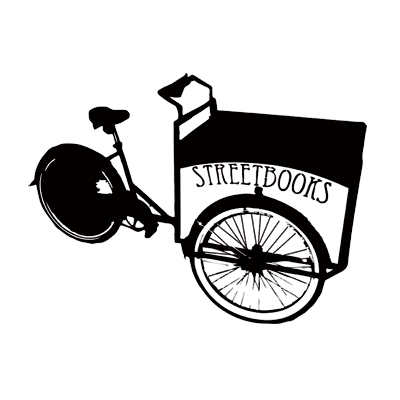A letter from novelist Karen Russell on behalf of our Spring Campaign:
Remember the excitement of adding your signature to the slip in the back of a library book?
It thrilled me when I was a kid, this connection to readers who came before me, some from earlier decades, some from my class at school. It felt like adding my name to a kind of intergalactic guest book: look who else had spent time in Terabithia, Mars, Macondo.
Nothing else in our age of accelerated obsolescence wears the way a book does. The words never get stretched or stained, they don’t rust. Books are elastic. There’s no limit to how many readers a story can support. Anyone who can read is welcome to move into and through them. Anyone with an imagination can stare out the windows of castles, the portholes of spaceships. Books are the original dream-exchange technology. If you’ve read the same book as someone, you have something profound in common. You share a set of memories. You’ve moved through the same terrain; contemplated the same ideas; survived the same events; inhabited the same roomy consciousness.
I was on my way to the Plaid Pantry on Milwaukie the other night, in a big-ass hurry for some reason I’ve already forgotten. A gray-haired man around my father’s age was sitting on his backpack on the sidewalk, immersed in a copy of Frank Herbert’s Dune. It had a Street Books label on the spine, the bicycle spokes smiling out at me. Instantly, my fear of slowing down melted away. In its place was a surge of joy.
“How are you liking that?” I asked him. “One of the best,” he said. We introduced ourselves. His name is John, and he is a Street Books patron. We discovered we had some great people in common: Paul Atreides and Lady Jessica and Thufir Hawat, as well as Laura and Diana and Hodge, mutually beloved Street Books librarians. Dune built a bridge for us on that uneven, buckling sidewalk. Backlit by the Plaid Pantry fluorescence, we flew to Arrakis.
Under a brimming silver moon, fuller than full, a watershed of light over the bare trees, we talked for quite a while about the Bene Gesserit (“those badass space-nuns”), which somehow led to John telling me about his daughter, a schoolteacher in Gresham, and me sharing photos of my kindergarten-age son. Portals kept opening in our conversation.
Fear is the mind-killer.
You may know the line from Dune, even if you have yet to read that trippy, prescient masterpiece. John and I talked about it that night–how it applies to our hurting world, and our city’s struggles, and the overlapping challenges we face today as Portlanders.
Fear is the heart-killer, too.
On our home planet, where it lately feels that we are hurtling towards the brink, it can feel unsafe to be generous; to slow down and start a conversation with a neighbor; to drop a clenched fist into an open palm. Street Books opens minds and hearts. It facilitates and supports friendships between housed and unhoused neighbors, built around a love of books. Street Books librarians are dedicated to providing books and reading glasses to Portlanders without homes. They routinely advocate for their unhoused patrons at the city and state level. The mission of getting books to folks living outside may sound like a humble one. But it’s the beating heart of Street Books’ truly grassroots, eye-level organizing and activism. Shared love is a strong foundation to build on.
The great Robin Wall Kimmerer, in a recent NYT interview, talked about how saturated contemporary media is with “finger-wagging and gloom-and-doom.” But as she points out, we’re missing the best part of the story if we don’t talk about how good it feels to pivot away from fear towards connection, to join hands in collective action:
“When you look at a lot of those examples where people are taking things into their hands,” writes Kimmerer, “they’re joyful. That’s healing…it feels good. It’s also good to feel your own agency.”
I am so proud to belong to the Street Books Board, and to support SB’s fearless, creative, loving, ongoing and growing efforts to unite people through literature.
Like Kimmerer says, taking things into your own hands, and giving things with those same hands, sharing time, sharing resources, sharing books, sharing conversation–it feels really good. There are lots of ways you can support the beautiful web of friendship and care that Street Books spins for our patrons. You can volunteer with us. You can come to Street Books vigils and ice cream socials and gatherings in our city, that bring the housed and the unhoused together in joyful ways. You can advocate for your unhoused neighbors. You can make Loaners your go-to gift book, and pick up a copy yourself. You can make a much-appreciated one-time or recurring donation. Even the smallest gift ripples out through our city in concentric rings–I’ve seen and felt this firsthand.
All kinds of invisible lines divide us. Books dissolve boundaries, real and imaginary. They bridge hearts and minds, creating connections as nothing else in our lives can. Reader to reader, dreamer to dreamer, equal to equal, neighbor to neighbor–all spoked around the hub of literature. Thank you for your gifts that make so much possible, and open up the portals.
- Karen Russell
(author of Pulitzer-prize finalist Swamplandia)
Return to our 2024 Spring Campaign page or SUPPORT OUR WORK

